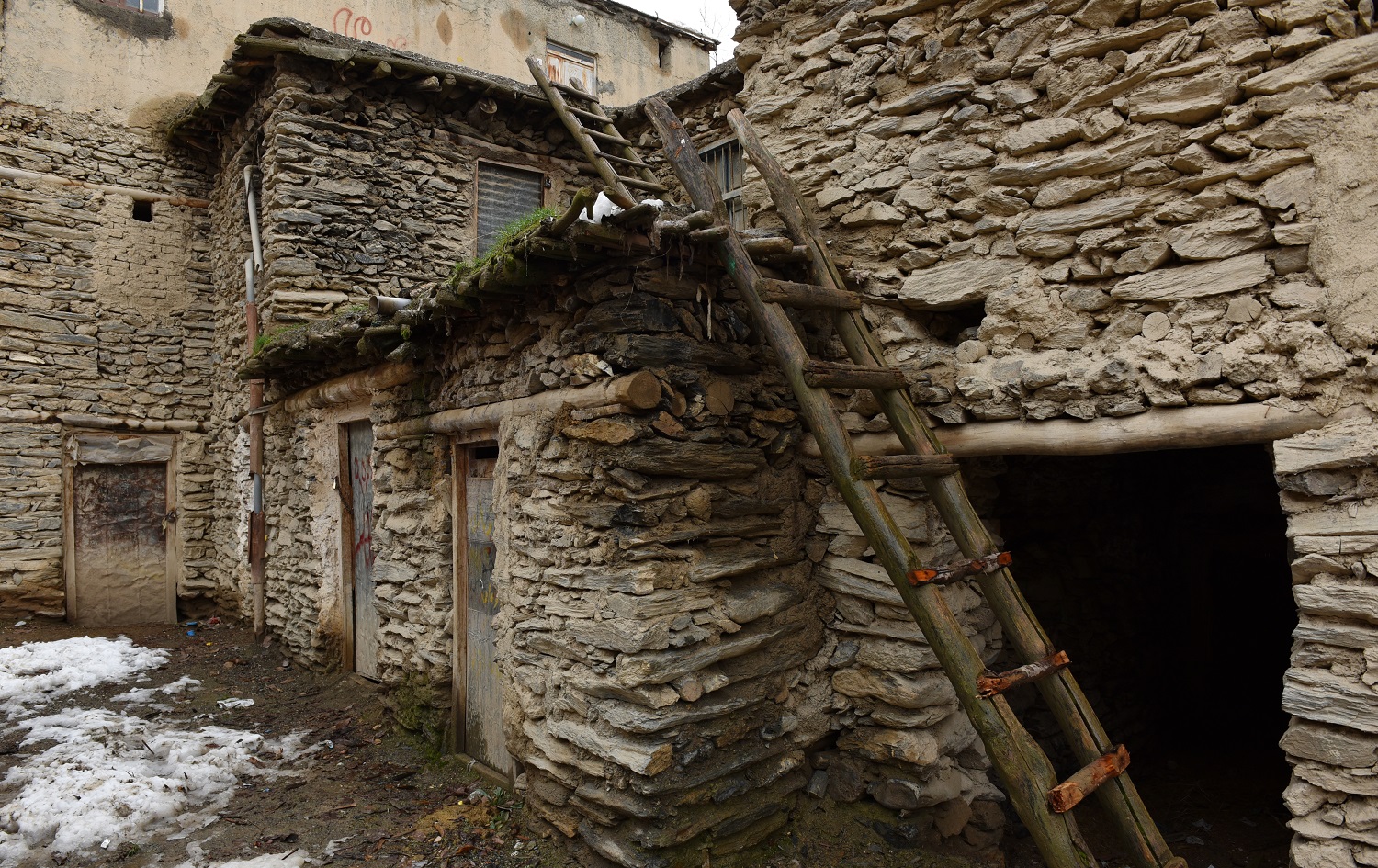
Palangan village in the Hawraman region, Kurdistan province, on May 18, 2017. Photo: Ghader Marzi/UNESCO
ERBIL, Kurdistan Region — Kurds of Hawraman welcomed the addition of their region to a list of world heritage sites as a golden opportunity to showcase the nature and culture of the area to the outside world.
Hawraman’s "culture, identity, geography and the beauty of its nature have been ignored throughout history. We never had the chance to come and speak of the beauty of our region, as well as its cultural and intellectual background and infrastructure," journalist and environmentalist Aram Weledbeigi said from his home in Paveh, Kermanshah province.
Located in the Zagros Mountains of Iran’s western Kurdistan and Kermanshah provinces, the Hawraman region was added to the World Heritage List of the United Nations cultural organization UNESCO on Tuesday. It is known for its stunning mountain scenery, unique culture, and history.
This listing will “raise Hawraman’s name and Kurdistan in the world… Hawraman’s name will be mentioned a thousand times,” said political geographer Mahmood Mobarakshahi, expecting international interest in the area will grow and expressing hope that UNESCO will help to preserve and protect the landscape.
UNESCO noted the Hawrami people had adapted their lives to respond to the unique environment and scarcity of resources, building tiered villages on steep slopes. Weledbeigi said the Hawrami people have worked with their natural geography rather than trying to destroying the environment.
The people of Hawraman are seen as self-sufficient, producing their own clothing, shoes, and tools. It boasts walnut, pomegranate, and mulberry trees. Cultural festivals annually attract thousands of visitors. The Hawrami dialect is considered by many as one of the oldest in the Kurdish language and the region has a long history of literature and poetry.
A local council wants to see thoughtful development that will preserve the heritage and environment.
“This is only the beginning, we need to put in place an effective/integrated management plan so that the UNESCO standards are applied and the region's agro-pastoral system is conserved and preserved from unsustainable developments and environmental damage,” said Sayed Mukhtar Hashemi, member of the Hawraman council for the UNESCO recognition.
He wants to see conscious, rights-based tourism, the establishment of a center for Hawraman studies, and a plan to protect the architecture.
Last year, locals campaigned to get Hawraman on the UNESCO list, hoping it would boost tourism and their economy. “First, I hope this introduces the culture and originality to the people all over the world. Secondly, I hope it paves the way for economic development for the sake of tourists who are coming back here," Mohsen Rahmani said at the time.
Weledbeigi thinks the designation will make a “short term” difference, attracting tourists and helping some development.
“In the short term, this decision can spur growth and increase movement in the markets of the area,” he said. But in the long term, economic stability is “related to the country’s economic policy and how much it’s concerned with the development of the area.”
In 2006, the Bisotun area in Iran’s Kermanshah province was added to UNESCO’s World Heritage List. The area “witnessed a short-lived growth,” Weledbeigi said, noting that this would be the fate of Hawraman too, depending on the government’s economic policy.
Kurdish areas of Iran are among the country’s most impoverished, made worse as the economy was been strangled by US sanctions introduced after former president Donald Trump unilaterally withdrew from the nuclear deal in 2018.
The Hawraman region straddles the Iran-Kurdistan Region border, but only villages on the Iranian side were included in the heritage designation. Mukhtar called for the Kurdistan Regional Government (KRG) and Iraq to build a single strategy for the region, on both sides of the border.
Kurdistan Democratic Party (KDP) leader Masoud Barzani described UNESCO’s decision as “another gain for the people of Kurdistan and the Hawraman Region.”
Additional reporting by Khazan Jangiz









Comments
Rudaw moderates all comments submitted on our website. We welcome comments which are relevant to the article and encourage further discussion about the issues that matter to you. We also welcome constructive criticism about Rudaw.
To be approved for publication, however, your comments must meet our community guidelines.
We will not tolerate the following: profanity, threats, personal attacks, vulgarity, abuse (such as sexism, racism, homophobia or xenophobia), or commercial or personal promotion.
Comments that do not meet our guidelines will be rejected. Comments are not edited – they are either approved or rejected.
Post a comment